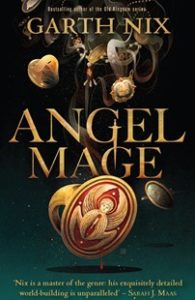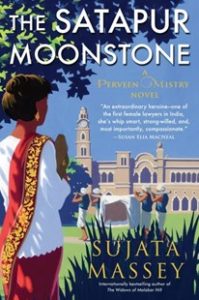 We are in a reimagined 17th century Europe where something terrible has happened in Ystara (Spain). The inhabitants that survived fled and are now an underclass of ‘refusers’ in Surance (France). They are immune from the angelic powers that act as a sort of power source in the society (angel power is called upon by using icons – this might be for healing, or for building, or for protection, or pretty much anything). Refusers who are touched by angelic magic either die quickly of the ash blood plague or are turned into violent ‘beastlings’. Cardinals who can harness the powers of the highest angels are in charge, along with the Queen. The story revolves around a powerful icon-maker, Liliath, thought dead a century before, who comes back to life plotting revenge.
We are in a reimagined 17th century Europe where something terrible has happened in Ystara (Spain). The inhabitants that survived fled and are now an underclass of ‘refusers’ in Surance (France). They are immune from the angelic powers that act as a sort of power source in the society (angel power is called upon by using icons – this might be for healing, or for building, or for protection, or pretty much anything). Refusers who are touched by angelic magic either die quickly of the ash blood plague or are turned into violent ‘beastlings’. Cardinals who can harness the powers of the highest angels are in charge, along with the Queen. The story revolves around a powerful icon-maker, Liliath, thought dead a century before, who comes back to life plotting revenge.
Angel Mage references Dumas’ The Three Musketeers and much of the novel revolves around the development and interaction of the four musketeers – Dorotea an icon painter (and based on D’Artagnan), Henri, a clerk, Simeon, a doctor and Agnez, a swashbuckling cadet musketeer. These are great characters, and a lot of fun, but the exposition around them takes up a lot of the book so that we get a lot of banter between them, when they should actually be solving the conundrum around the mysterious Lady Dehiems and what the hell the Night Crew of the refusers are up to. Still, as you would expect of Nix, there is a lot to like here — great world building, a lot of thrills and adventure, romantic entanglements and empathetic characters.
Mr Nix says this is a stand alone novel, but there’s a lot of backgrounding and build up of the main characters, and a complicated and interesting world, so that I’d be pretty surprised if there wasn’t more stories set in ‘Surance and neighbouring states’.



